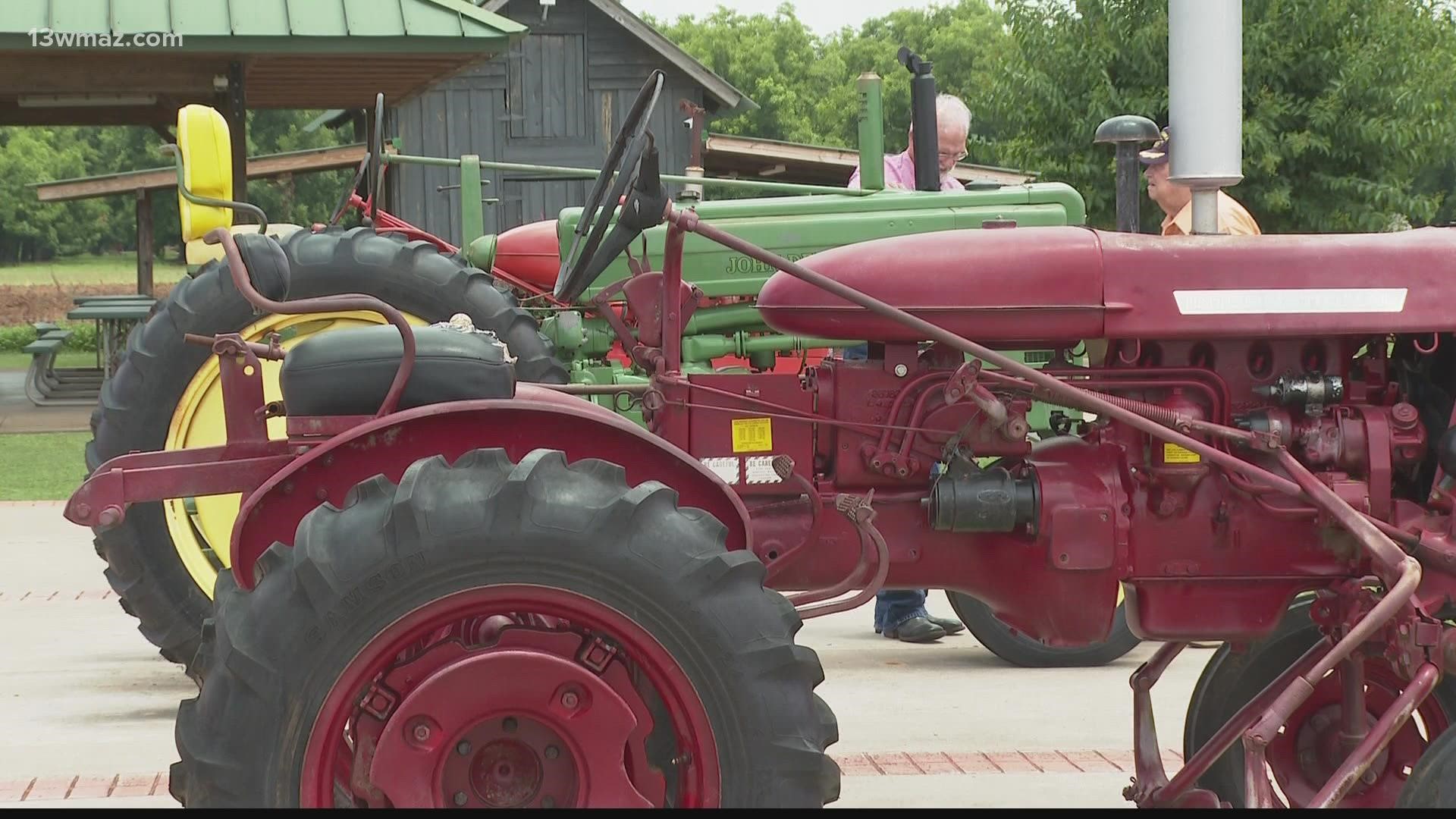MACON, Ga. — Agriculture is one of Georgia's largest industries. 1 in 7 Georgians works in agriculture, and it contributes nearly $70 billion annually. We know it's a physically-tough job, but a new survey finds it's mentally taxing, too.
Farmers across Georgia found an alarmingly-high amount of stress in the industry, especially with first generation farmers.
Mercer's Georgia Rural Health Innovation Center conducted a survey with more than 1,600 responses. They found 60% of first generation farmers have thought about dying by suicide in the past year, and 9% were thinking about it daily.
Stephanie Basey, a PhD candidate at Mercer University, says, "The biggest takeaway from this study is that first generation farmers are stressed."
She says one factor is, "first generational farmers experience higher amounts of stress than generational farmers, and they have less coping mechanisms to deal with the stress than generational farmers."
Mark Sanchez, the CEO of Lane Southern Orchards, is a first generation farmer. He says, "It's very satisfying, but there is a lot that goes into it that people don't understand."
He's worked in the industry for more than 40 years, but, "It's not for everybody. It's not a 9-5 job and then go home and forget about it," Sanchez said.
He says it's tough, and a recent struggle is the changing economy.
"Finding people is hard -- inflation is hitting us. Everything we do revolves around energy. We have to have fuel -- diesel fuel and gasoline -- to run our equipment, to run our trucks," Sanchez said.
Basey says on top of that, some of the major stressors include work-life balance, changes to ag laws and policies, and new technology that farmers have to learn and keep up with.
Anne Montgomery, a biostatistician, says, "There is a lot that they cannot control. I think that's where the stress becomes the highest. None of those factors are under their control."
One solution Basey suggests is family- or community-based interventions to teach farmers coping mechanisms, and how to deal with stressors.
"Our goal, the big takeaway for this, is being able to develop those interventions that can help a farmer before they get to a point of crisis," Basey said.
Basey says they partnered with the Georgia Foundation for Agriculture, a part of Georgia Farm Bureau, to develop farmer-informed, farmer-specific interventions.
She says they're still in the planning stage for those right now. Basey also says there are Georgia Farm Bureau offices in every county, and UGA's extensions office also has resources.

